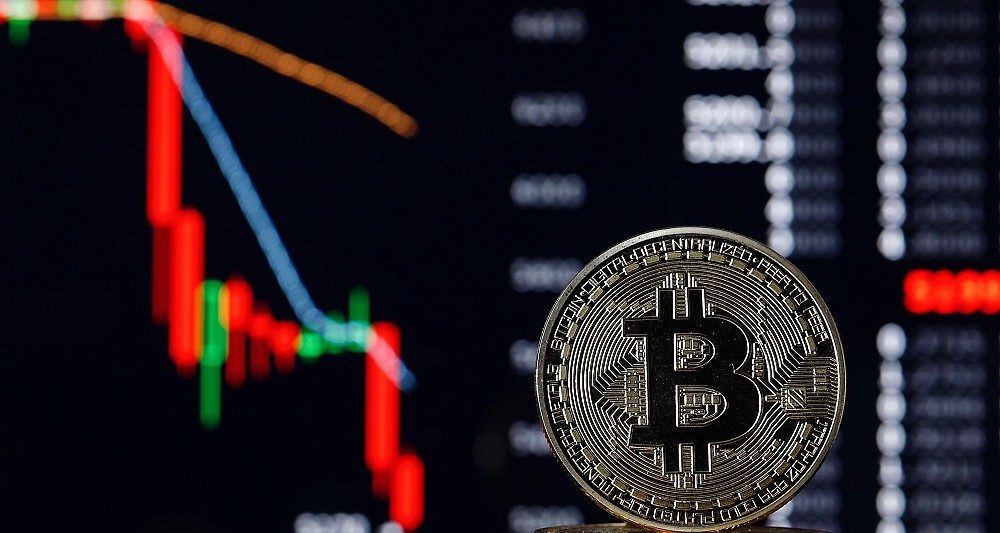Bitcoin Rally Cools After Hitting $111K, Analysts Eye $95K as Key Support
28.05.2025 14:00 1 min. read Alexander Stefanov
After a strong rebound from its January correction, Bitcoin surged over 50% to reach an all-time high of $111,880.
However, momentum is now slowing, and analysts at Bitfinex believe BTC could be entering a short-term cooling phase.
In their latest report, Bitfinex pointed to increased profit-taking among short-term holders, who collectively realized $11.4 billion in gains over the past 30 days—up sharply from $1.2 billion the previous month. This wave of selling, they say, may cap Bitcoin’s near-term upside.
Despite external pressures, including political uncertainty and tariff threats from U.S. President Donald Trump, Bitcoin has remained relatively stable. Analysts attribute this resilience to strong demand from institutional players and continued inflows into spot ETFs.
Crucially, the $95,000 price level has emerged as a critical support zone. Bitfinex notes that this is the average cost basis for short-term holders, making it a psychological and technical anchor for the market. If BTC holds above it, analysts believe the rally could extend into the third quarter.
They also highlighted recent institutional accumulation—over 8,800 BTC purchased—as a sign of strengthening confidence in Bitcoin’s long-term position as a strategic asset.
-
1
Crypto Inflows hit $1B Last Week as Ethereum Outshines Bitcoin in Investor Sentiment
07.07.2025 20:30 2 min. read -
2
Bitcoin: Is the Cycle Top In and How to Spot It?
09.07.2025 16:00 2 min. read -
3
Public Companies Outpace ETFs in Bitcoin Buying: Here is What You Need to Know
02.07.2025 12:30 2 min. read -
4
Robert Kiyosaki Buys More Bitcoin, Says He’d Rather Be a ‘Sucker Than a Loser’
02.07.2025 22:00 1 min. read -
5
This Week in Crypto: Whale Accumulation, Ethereum Signals, and a Sentiment Shake-Up
05.07.2025 21:00 3 min. read
Over $5.8 Billion in Ethereum and Bitcoin Options Expired Today: What to Expect?
According to data shared by Wu Blockchain, over $5.8 billion in crypto options expired today, with Ethereum leading the action.
IMF Disputes El Salvador’s Bitcoin Purchases, Cites Asset Consolidation
A new report from the International Monetary Fund (IMF) suggests that El Salvador’s recent Bitcoin accumulation may not stem from ongoing purchases, but rather from a reshuffling of assets across government-controlled wallets.
Ethereum Sparks Altcoin Season as FOMO Shifts Away From Bitcoin
Traders are rapidly shifting their focus to Ethereum and altcoins after Bitcoin’s recent all-time high triggered widespread retail FOMO.
BSTR to Launch With 30,021 BTC, Becomes 4th Largest Public Bitcoin Holder
BSTR Holdings Inc. is set to become the fourth-largest public holder of Bitcoin, announcing it will launch with 30,021 BTC on its balance sheet as part of its public debut.
-
1
Crypto Inflows hit $1B Last Week as Ethereum Outshines Bitcoin in Investor Sentiment
07.07.2025 20:30 2 min. read -
2
Bitcoin: Is the Cycle Top In and How to Spot It?
09.07.2025 16:00 2 min. read -
3
Public Companies Outpace ETFs in Bitcoin Buying: Here is What You Need to Know
02.07.2025 12:30 2 min. read -
4
Robert Kiyosaki Buys More Bitcoin, Says He’d Rather Be a ‘Sucker Than a Loser’
02.07.2025 22:00 1 min. read -
5
This Week in Crypto: Whale Accumulation, Ethereum Signals, and a Sentiment Shake-Up
05.07.2025 21:00 3 min. read


